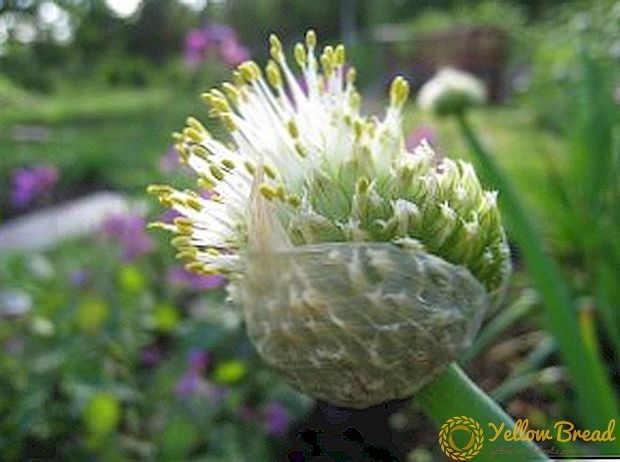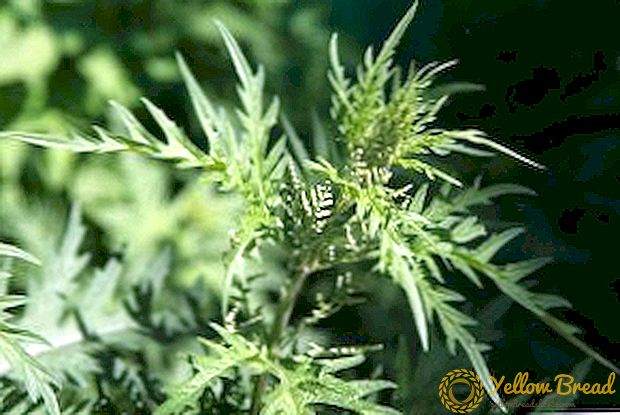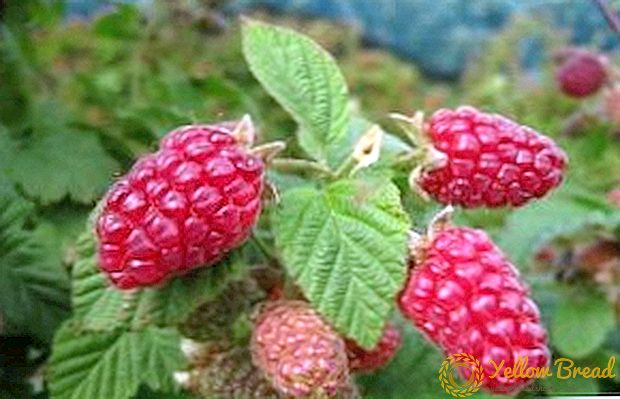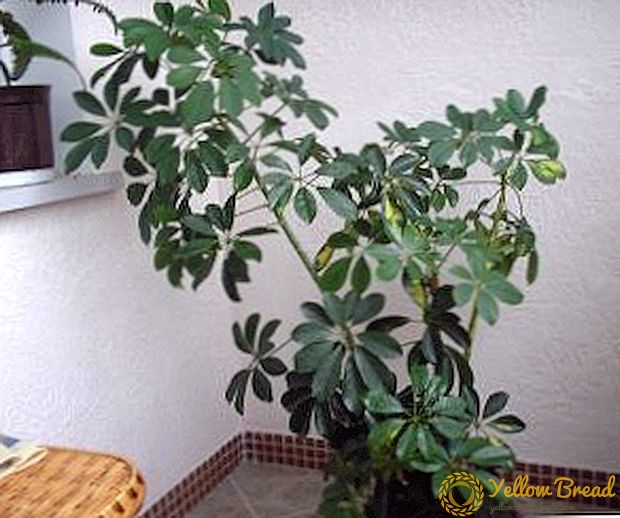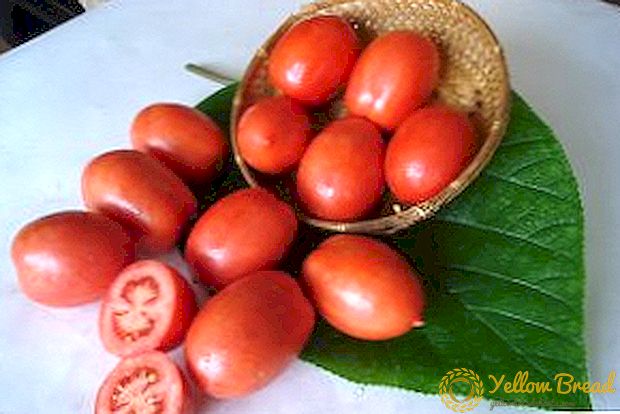
For lovers of large-fruited pink tomatoes there is a very good hybrid variety of tomato "Apricot", this is a guest from Lithuania. During his history in Russia, he managed to earn credibility.
The description of the variety of tomatoes "Apricot" F1, characteristics, yield and merit and will be discussed in our article.
Tomato "Apricot" F1: description of the variety
Tomato "Apricot" F1 - is a mid-season hybrid, from planting seedlings to ripening first fruits will have to wait 105-110 days. The plant is indeterminate, standard, rather tall 140-180 cm. This type of tomato is recommended for cultivation in greenhouse shelters and in open ground. It has a high resistance to cracking of fruits and tobacco mosaic, as well as to other types of diseases.
Fruit Description
 Mature fruits are pink or dark pink, they are dense, fleshy. The shape is rounded.
Mature fruits are pink or dark pink, they are dense, fleshy. The shape is rounded.
In accordance with the description of tomato varieties, the tomato "Apricot" has the largest fruit of pubescent representatives, the weight of the fruit varies from 350 to 500 grams.
The number of chambers 4-5, the solids content of 5-6%. Harvested fruits can be stored for a long time and tolerate transportation.
Farmers who grow tomatoes for sale in large volumes fell in love with his product quality.
Country of breeding and year of registration
The tomato "Apricot" was bred in Latvia, by Riga specialists in 1999, received registration in Russia as a hybrid variety recommended for greenhouse shelters and unprotected soil, received in 2002. Since that time, it has enjoyed steady popularity among amateurs and farmers for its high marketable qualities.
In which regions is it better to grow?
For the cultivation of tomatoes "Apricot" F1 in the open field is more suitable southern regions of Russia.
In the middle lane it is permissible to grow this hybrid variety under film covers.
But in more northern areas, the use of heated greenhouses is recommended, since the Abrikos tomato practically does not tolerate the summer temperature drops in these latitudes.
Way to use
Because of their massiveness, tomatoes "Apricot" F1 will not be suitable for whole-canning, but they can be used in barrel pickles. Tomatoes of this type will be very good fresh.Many lovers say that they make very good juice and pasta.
Yield
 With proper care and good conditions, this species can give up to 3-5 kg per bush.. With a recommended planting density of 4 bushes per square meter. m, you can collect an average of 18 kg. This is a very good indicator of yield.
With proper care and good conditions, this species can give up to 3-5 kg per bush.. With a recommended planting density of 4 bushes per square meter. m, you can collect an average of 18 kg. This is a very good indicator of yield.
Advantages and disadvantages
Among the main advantages of this hybrid note:
- fruit taste;
- good yield;
- resistance to temperature extremes;
- the duration of fruiting.
Special features
Among the features of this hybrid is to provide large-fruited and duration of fruiting. You can also say about its resistance to temperature extremes and resistance to diseases.
Growing up
The trunk and branches of the bush due to high growth need garters and props. Shrub is most often formed in two or three stems, but preferably in three. At the stage of development and growth strongly needs complex feedings.
Diseases and pests
 If the disease has entered a deeper stage, then the “Barrier” tool should be used.
If the disease has entered a deeper stage, then the “Barrier” tool should be used.
When fomozom disease should remove the affected fruit, and then the bushes to process the drug "Home".
The most frequent pests in the middle lane of this species are moths, moths and sawflies, and Lepidocide is used against them.
The sucker miner can also affect the plant, and the Bison should be used against it. In the more southern regions, one should be wary of a rusty mite, the Bison drug will be effective against it.
Conclusion
As follows from the general review, this is not a very difficult to care for variety. If you follow the simple rules of care, you can get a very good result. Good luck and great harvest.

